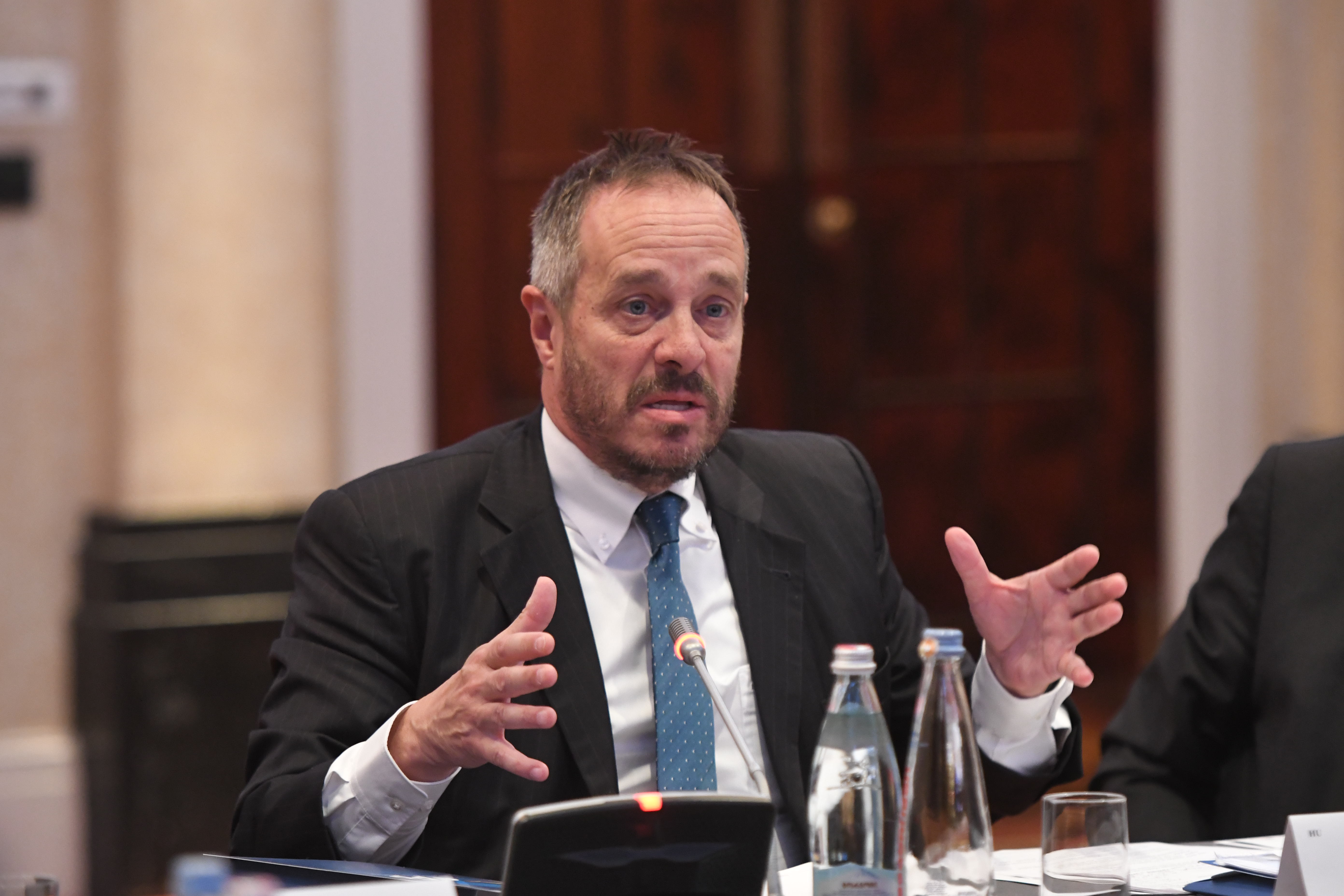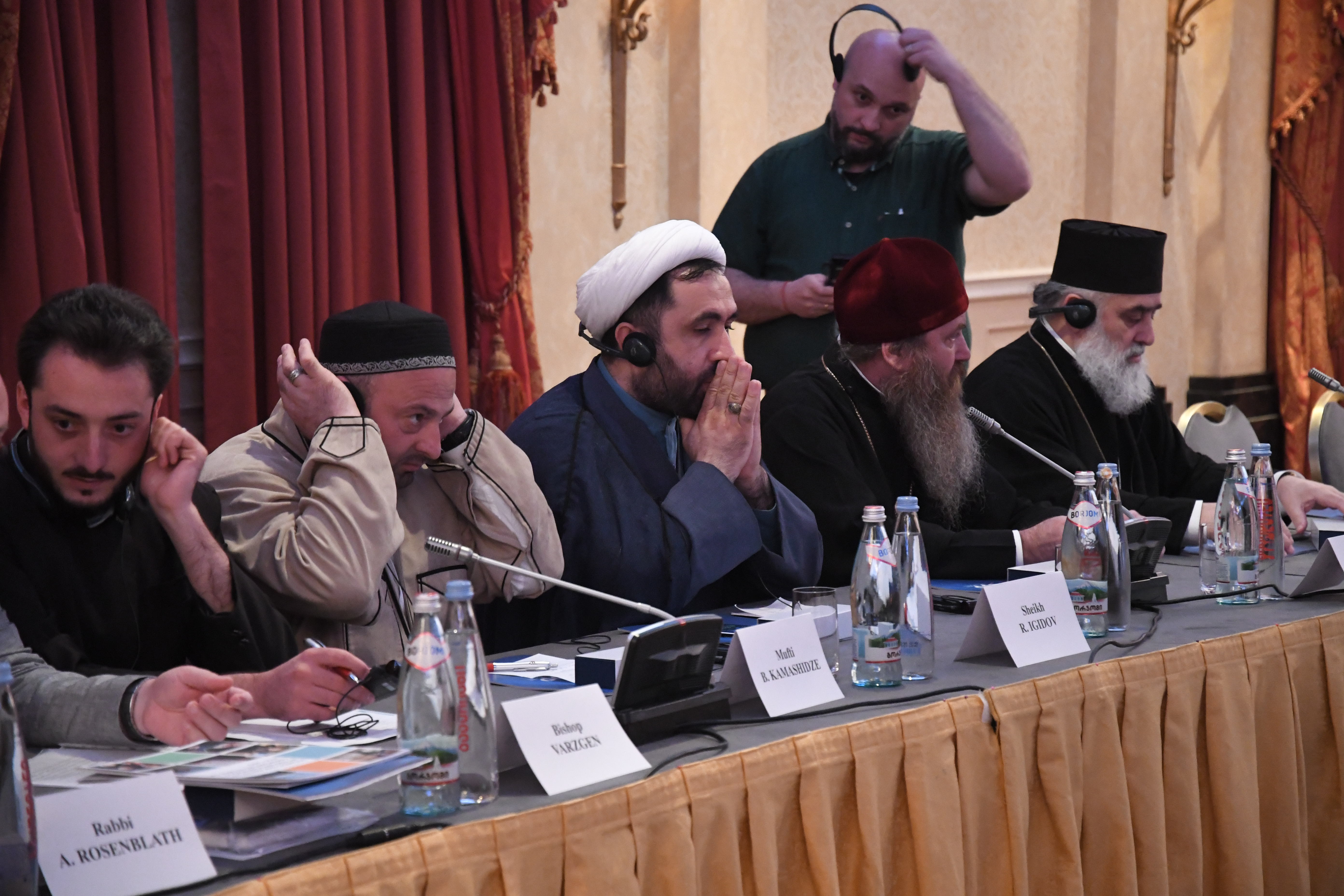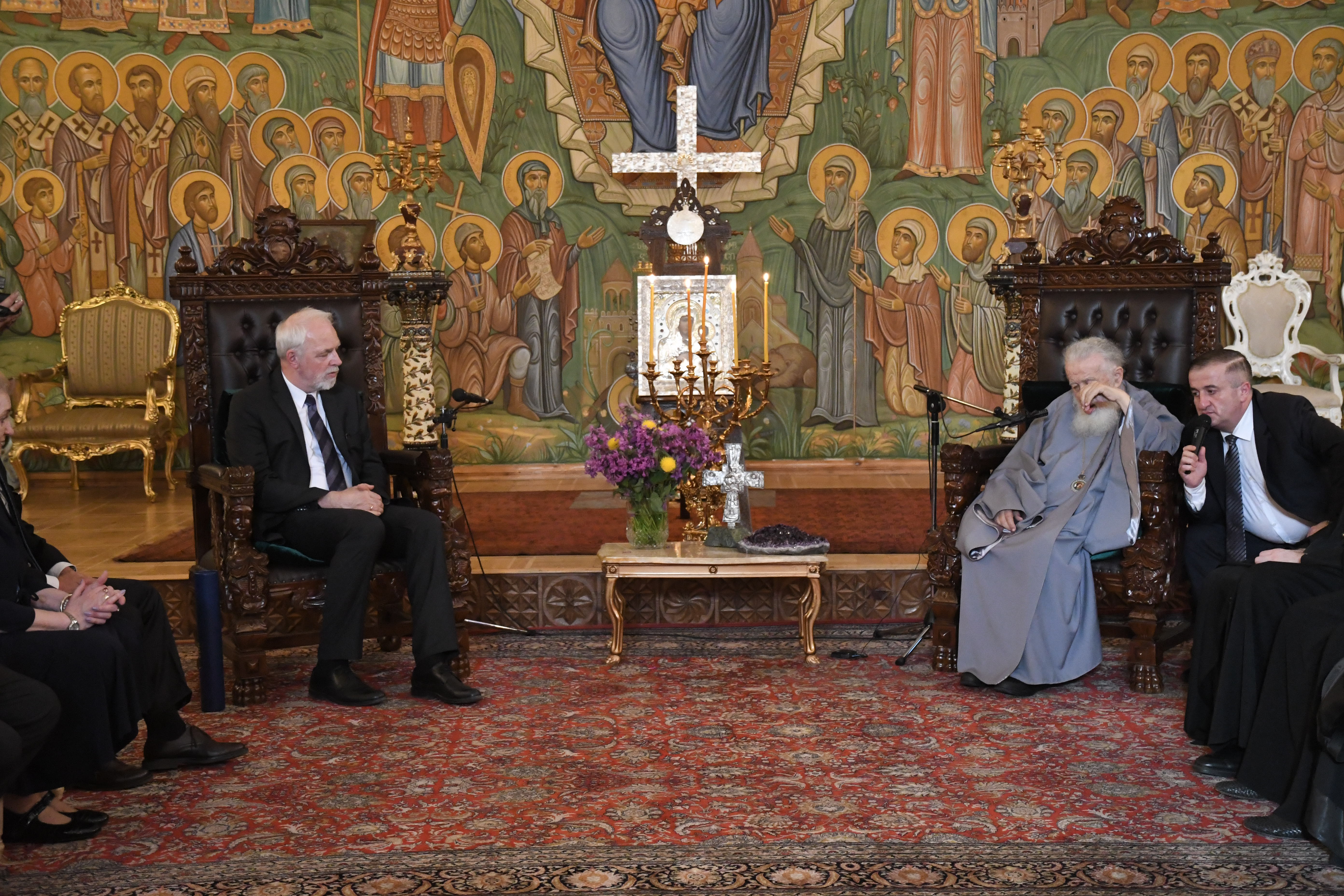The EU Integration – What Role Do Churches Play?
In addition to it being one of the first European countries to adopt Christianity, Georgia is also a country where a multitude of faiths and confessions has peacefully co-existed for centuries. The Georgian Orthodox Church (GOC) in particular, as the biggest religious community, enjoys tremendous support and trust from Georgian society and is an important civil society actor.
And since the Georgian Church enjoys way more public trust than the government, it has become embedded in Georgian society’s collective conscience that that which the Church liketh, they should also like, and that which it loatheth, they should loathe too. And this also involves the EU, NATO and Georgia’s Euro-Atlantic aspirations. The EU and NATO, in order not to be considered an alien concept imposed over national identity in exchange for security and welfare, also need to be trusted by the GOC, especially in the eyes of the older generations. The fact that the ruling party has learnt the past lessons of its predecessor all too well was demonstrated when the government, in cooperation with the local NGO Center for Development and Democracy, sent a delegation of high-ranking clergymen from the Patriarchate and other churches to the EU and NATO headquarters, soon followed by a visit to the US.
However, it’s not only about the Georgian government’s attempts to legitimize the pro-Western course through the Church’s influence - the EU is also well aware that the GOC is an important actor, as became increasingly evident when the high-ranking EU officials arranged a meeting with the Patriarch while visiting Georgia. The former EU Commissioner for Enlargement and the European Neighborhood policy, Štefan Füle, and his successor Johannes Hahn, both paid a visit to the Patriarch, Ilia II. Therefore, it was little surprise when the delegation of the EPP, the largest party in the European Parliament, decided to pay a visit to Georgia to discuss the role of religious actors in the European integration process. It was not their first visit of this kind to the EaP country: in 2017, a delegation of the EPP Working Group (WG) visited Ukraine to discuss the role of the churches in Kyiv’s European aspirations - in return, the Ukrainian Patriarch Philaret paid a visit to the European Parliament in May this year. Just one month later, it was Georgia’s turn to host high-level guests from the European Parliament.
“We came to Georgia for two reasons: first, because Georgia is a frontrunner among the Eastern Partnership countries and second - it is also a country where the Church enjoys tremendous public trust and support,” explained Romain Strasser, Head of the Unit at the Intercultural and Religious Activities Directorate of the EPP group. “We have come to find out what role the different religions play in the European Integration process.”
György Holvenyi
The delegation of the EPP WG “Intercultural and Interreligious Dialogue,” headed by co-chair MEPs Jan Olbrycht and György Holvenyi, arrived in Tbilisi on June 28. In the scope of the two-day visit, meetings were held with ambassadors, members of civil society and academia, and representatives of the Patriarchate, Armenian Apostolic Church, Muslim and Jewish communities and other religious figures.
The meeting with civil society and academia focused mostly on issues of secularism, transparency and the clash between liberal and more conservative approaches.
Among the speakers from the Georgian side was Ketevan Chachava, one of the “enablers” of newly-built bridges between Georgian churches and the Euro-Atlantic community, who was eager to share her first-hand experience.
“After initiating the dialogue with the religious leaders, we soon saw them become the carriers of the pro-Western messages,” she said. “The importance of dialogue and direct communication is very important, and religious leaders should not be left out of the discussion. They need to have the right information about what is happening because they are among the most trusted carriers of messages.”
At the meeting with the clergy, the representatives of various churches and confessions expressed their support and commitment towards the country’s European aspirations, while MEP Olbrycht was quick to underline the importance of religion and spirituality for the European Union and dismiss the harmful stereotypes concerning religion, the question of morality, and the question of family inside the EU.
“What we observe today is the very important and growing role of religion and churches inside the European Union,” Olbrycht noted. “The [Georgian] Church is a very important actor, especially in Georgia because of its history and traditions. So, we hope that the Church will be also be interested in what is going on inside Europe. Very often, we see that there are stereotypes or accusations that Europe is anti-Christian, that the Europeans are non-believers, etc. No, Europe is complex and there are different traditions, different debates inside the EU. I think it is much more useful to present the real image of Europe and hope that the Church, in terms of the institution and the people, will be open to discuss, debate and to see the truth of Europe.”
Olbrycht’s Hungarian counterpart did not mince his words either, when, after discussions with the Georgian academia, he was asked what practices Georgia should learn from the EU in all matters religious, stressing that first and foremost, Georgia should take into consideration its own values.
“We have not come here to teach you European traditions; we are here to listen to you and to learn from you. You do not need to copy. And I think that the churches in Georgia have huge added values that are sorely needed in Europe,” he said, noting that Georgia was a good example of different churches coexisting peacefully.
Further meetings included a visit to the Georgian Parliament, where the EPP delegation met the Chairwoman of the European Integration Committee, MP Tamar Khulordava and other members of the committee. The MEPs discussed the role of religion in the development of society and in state building. The sides spoke about disinformation and propaganda aimed at discrediting the EU policy and European values. The MEPs expressed readiness to strengthen communication with society.
The focal point, however, was undoubtedly the top-level meeting with the Catholicos Patriarch of Georgia, Ilia II, at the Georgian Patriarchate. The octogenarian Patriarch, invariably regarded as the country’s most popular figure in the last 20 years and widely regarded as a living saint by believers, thanked the guests for their visit and the assistance provided to Georgia at the international level. Remaining as sharp as ever even in his reclining years, he spoke at length about the importance of spirituality in today’s turbulent world. He pointed out that Georgia is a country with an ancient Christian culture, where people of different faith, beliefs and ethnos have lived, and still live, in mutual respect and love for centuries and that the Orthodox Church has been nurturing and contributing to their peaceful co-existence.
The MEPs thanked the Catholicos Patriarch of All Georgia for his hospitality, declaring that the role of his Holiness was instrumental in maintaining peace in the Caucasus region and expressed their hope and willingness to further strengthening relations with the GOC. The MEPs in fact did little to hide their admiration for the Patriarch, with Slovakian MEP Anna Zaborska noting how the people they had met from the various churches, were “indeed very reasonable and desiring of the best for their country.” The overall consensus was clear – be it from the perspective of the Church, politicians or civil society: it is crucial for the European Parliament and Georgian churches and religious communities to be on the same page when it comes to moving forward towards a more integrated, resilient relationship between Georgia and the European Union. As MEP Olbrycht quipped in his final remark, “churches also mean people, and we need people to know what the real image of Europe and the European Union is.”
By Vazha Tavberidze













